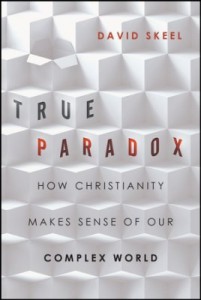The Genome Project–Write: As human genome-scale synthesis appears increasingly feasible, a coordinated scientific effort to understand, discuss, and apply large-genome engineering technologies is timely. The overarching goal of this effort is to understand the blueprint of life provided by the Human Genome Project (HGP-read). Some critics express concern that the project intends to synthesize a trans-human: The […]
Items included on this page come from a variety of sources. The perspectives conveyed may or may not express a Lutheran ethos. They can serve our instruction as discussion-starters, examples (positive and negative), and illustrations of intersections between God’s two kingdoms, intersections sometimes characterized by tension, sometimes by congruence. Inclusion does not imply endorsement.

Monitoring Advances in Artificial Intelligence
The Future Of AI: Is Something Different This Time? For classes in computer science, religion and ethics, business, and mathematics: the biggest shift in AI research has come through two developments. The first is the new capacity for machines to learn for themselves. The other development driving this wave of excitement is the ubiquity of Big […]
The Atlas of Emotions
Inner Peace? The Dalai Lama Made a Website for That — For courses in psychology, world religions, philosophy, and health: the Dalai Lama and Psychologist of Emotions Paul Ekman (adviser to the movie, “Inside Out”) have created a popularized map of the emotional mind. The Dalai Lama wants to keep religion out of it. “If we see […]
Nat’l Geographic on the Doctrinal “Geography” of Hell
The Campaign to Eliminate Hell: This NG brief update on the age-old discussions about hell can be used in courses in geography, doctrine, psychology, and faith and life. While religious philosophers have argued over the true nature of hell since the earliest days of Christianity, the debate has become especially pronounced in recent decades among […]
Women, Menstruation, and Identity
Do Women Need Periods? More women in their 20s and 30s are choosing to suppress their menstrual cycles. “Views are changing really rapidly,” E. Micks, MD, says. “That need to have regular periods is not just in our society anymore.” J. Prior, MD, says women should think carefully before trying to suppress their cycle. “Having a […]
Your Brain is not a Computer: Transhuman, cont.
The Empty Brain: “Like a computer” continues to be the current common brain analogy. This comparison fails on several levels (as have previous analogies across the centuries). Robert Epstein, senior research psychologist at the American Institute for Behavioral Research and Technology, explains why in this very readable in-depth article. Recommended for students and all readers.
Ethical Subjectivism and Redefining Death
A Subject Definition of Death: Some utilitarian bioethicists wants to redefine biological death to include a subjective and sociologically based meaning. Their purpose isn’t greater scientific accuracy. Rather, by making “death” malleable, they hope to open the door further to treating indisputably living human beings as if they were cadavers. Students can consider the author’s arguments […]
Ethics and Lab Embryos
Advance In Human Embryo Research Rekindles Ethical Debate: Researchers have now extended the time they can keep a human embryo alive in the lab from nine days to 13 days. Many are asking, “Why not go beyond the 14-day-post-fertilization limit that has governed this research to date?” This 4 min. audio clip and this essay […]
Scientism: More of the Same
The New Scientism: Still Fighting the Phantom War — This review of Excellent Beauty: The Naturalness of Religion and the Unnaturalness of the World by Eric Dietrich (Columbia University Press, 2015) can help students consider the claims about science explaining religion and whether awe, wonder, and beauty are adequate replacements for a coherent faith tradition.
Extraterrestrial Intelligent Life
Extraterrestrial Intelligent Life: How would finding extraterrestrial intelligence affect religious beliefs? What might it tell us about ourselves? What would the theological implications be? This 7 min. video interviews astrobiology experts and theologians about what it means to be human, what it means to be intelligent, what it means to be civilized–and whether radio signals from another world […]


 True Paradox: How Christianity Make Sense of Our Complex World
True Paradox: How Christianity Make Sense of Our Complex World